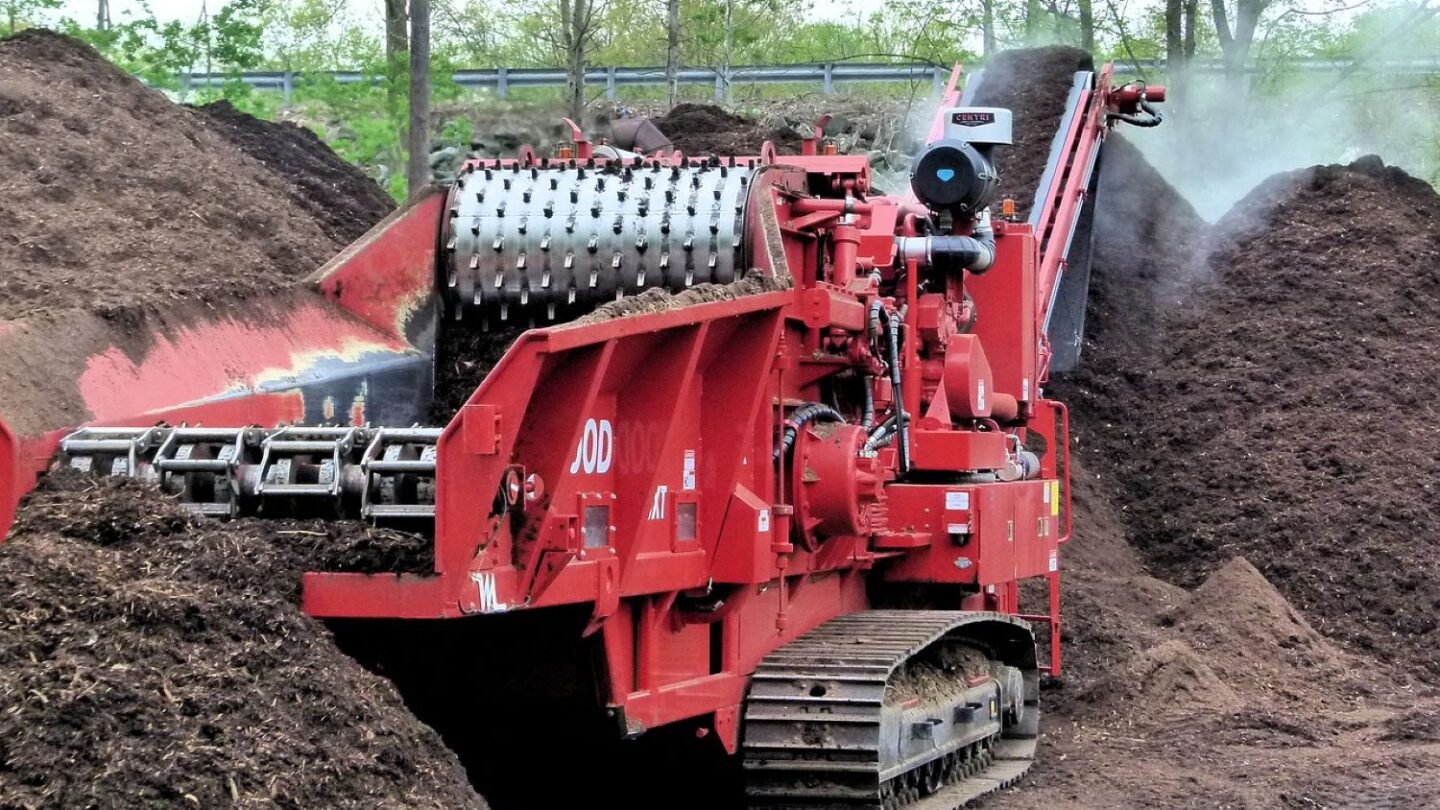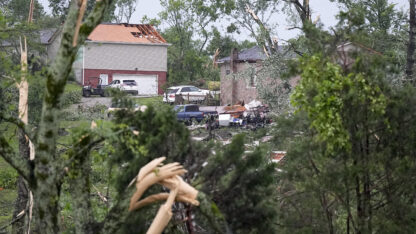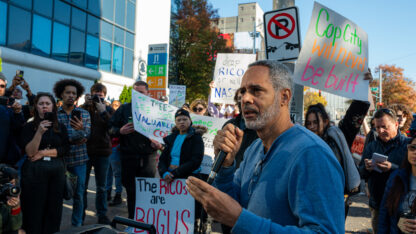Georgia cities trying out composting to combat food waste and climate change

This coverage is made possible through a partnership with WABE and Grist, a nonprofit independent media organization dedicated to telling stories of climate solutions and a just future.
Most people don’t pay much attention to where trash goes after a garbage truck picks it up. But as the director of Athens-Clarke County Waste Management, Suki Janssen does.
“When you manage a landfill, some of the most expensive costs aside from equipment and people is managing leachate, which is garbage juice,” she said.
That “garbage juice” comes from rain falling on the landfill and from the trash itself breaking down – especially trash with high moisture content, like rotting fruits and vegetables. Organic materials like food make up the biggest share of waste in landfills.
A big part of managing a landfill is keeping the leachate from polluting the surrounding area.
That food breaking down is also the main source of another big problem: methane gas. Not only can methane can catch fire, posing an immediate health and safety risk, but it’s also a potent greenhouse gas. In terms of climate change, the chemical compound is even worse than carbon dioxide in the short term, according to the U.S. Environmental Protection Agency.
Wasted food is the largest category of waste in Georgia’s landfills, accounting for 12% of what gets sent to landfills, according to the state Environmental Protection Division. Close to half of it comes from metro Atlanta.
Drawdown Georgia, a climate-solutions project, says cutting down on food waste is “an important part of Georgia’s carbon reduction opportunity.”
Some cities in Georgia are starting to address these problems with composting – turning food scraps into high-quality soil, instead of letting them rot in a landfill. But experts agree the state has a long way to go.
In Athens-Clarke County, businesses – from mom-and-pop restaurants to the University of Georgia – now have their food scraps collected and sent to a composting facility.
Other places in Georgia are also exploring compost, with the city of Decatur recently announcing a pilot program to try curbside compost collection for residents. In addition, Dekalb County commissioners are considering compost initiatives, though none have advanced.
The state could do more to encourage composting, advocates said.
One major problem: there aren’t enough facilities to process food scraps into compost. The metro Atlanta area alone could support ten composting sites, according to Atlanta-based food waste nonprofit Goodr. Instead, compostable materials from Atlanta usually have to be driven to Athens or Dublin – undermining the environmental gains.
Georgia composters are also pushing for a state chapter of the US Compost Council, Janssen said, to help advocate for composting with state regulators and lawmakers.
In the meantime, Goodr founder and CEO Jasmine Crowe-Houston said there’s another important step people and businesses can take: waste less food.
“There’s perfectly good food that we’re wasting every single day that could be going to real people that need it,” she said.
According to Crowe-Houston, while food waste is often forgotten in the climate conversation in favor of flashier solutions like electric vehicles, it’s an important piece of the puzzle. And as businesses and governments strive to cut emissions, Janssen said food waste is often low-hanging fruit.
“Waste reduction often is the easiest part of that,” she said. “And the least expensive if you’re talking about solar panels, or geothermal … if you’re going to do drastic facility improvements to make yourself more sustainable, those are a lot more expensive.”







